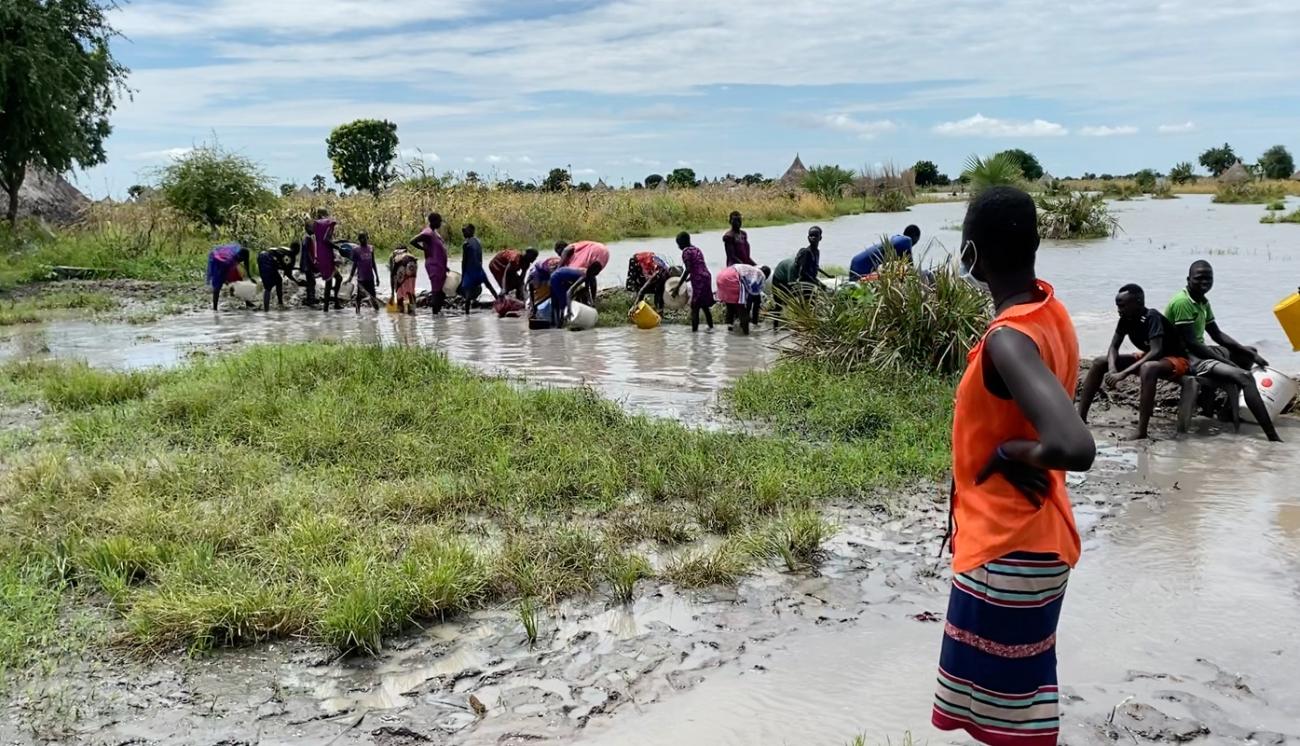In August, the Government declared a state of emergency in flood-affected areas.
Over a million people were affected by flooding in 2020 and entire communities, mostly in areas along the Nile, fled to higher ground to escape the flood waters. Close to half a million people were displaced, with women and children most affected. In August, the Government declared a state of emergency in flood-affected areas. People in Jonglei State and the Greater Pibor Administrative Area, were hardest hit by the flooding and were already vulnerable, having earlier been displaced by sub-national violence.
Villages and people’s homes were submerged by the flood waters, destroying people’s crops and killing their livestock. Infrastructure and public facilities did not escape the waters. Hundreds of schools and health and nutrition centers were damaged, compromising essential services to communities. Key immediate needs of flood-affected people included food, water purification tablets, plastic sheeting for temporary shelter, mosquito nets, fishing kits, basic health items and the replenishment of medicine, nutritional supplies and dignity kits.
Coordinated by OCHA, humanitarian response operations were scaled up from July onward to meet the needs of the most vulnerable people, with funding from the UN’s Central Emergency Response Fund and the South Sudan Humanitarian Fund, among other sources. Using limited resources, people were provided with emergency flood response kits. Hundreds of thousands of people were reached with food assistance and livelihood support. Displaced people received plastic sheeting for temporary shelter, water, sanitation and hygiene support, and protection services.
Humanitarian organizations on the ground – most of them South Sudanese – worked tirelessly as the needs rose along with the flood waters, but faced many challenges. Flood response activities were constrained by insecurity that forced some local partners to put the flood response on hold. Persistent heavy rains made roads impassable and flooded airstrips, putting an extra burden on transporting aid to where it was needed the most.
The waters are now slowly receding, but people’s needs still remain. The United Nations, non-governmental organizations and the local authorities continue to work together to help flood-affected people return to their homes and livelihoods as soon as possible. Further investments will be required in 2021 to strengthen people’s capacity to cope with recurring shocks, including flooding.















